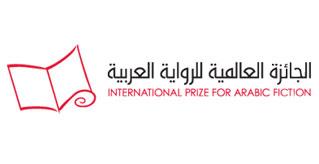IPAF Shortlist Authors at the Abu Dhabi International Book Fair
02/05/2019

The 2019 IPAF shortlisted authors, including the winner Hoda Barakat, took part in a number of events at the Abu Dhabi Book Fair after the winner announcement last Tuesday.
The day after the winner announcement, all six authors headed to the Abu Dhabi International Book Fair on its opening day where they joined the Al Multaqa book club and the Sea of Culture foundation for discussions and questions from the audiences about their novels.
At Al Multaqa, Kafa Al-Zou’bi said that she wanted to write about the crisis of the Arab individual and not just about Jordanians. She commented, “I wrote about Jordanian specifics with the purpose of reaching everyone.” In response to a question about whether, based on the novel, there is no place for women in Baghdad, Inaam Kachachi said that the period of the 1940s was not an easy time for women, but in general the situation has become more difficult for both men and women since then. She also clarified the line between reality and fiction when it comes to the novel, and revealed that upon her death the real Taj al-Muluk left her correspondence to the author (Kachachi), as did Mansour, her lover, to her.
Meanwhile, Shahla al-Ujayli answered questions related to the title of her novel, “I don’t like direct titles. The enemy has more than one face: there is Nicholas who threatens to deprive the heroine of her mother, and there is the enemy who robs us of our parents through political detention.” And replying to a question about the letters in The Night Mail, Barakat said lack of communication is always the most painful when it is with those closest to us, which is why the letters were always addressed to the closest people to the characters.
Questions to Adel Esmat were on writing about the countryside. He elaborated that the first Egyptian novel, considered the prototype of the Arabic novel, was about the countryside. He also added that commandments are an important tradition in Egyptian families, in which riches – material and spiritual – are passed on to grandchildren.
Mohammed Al-Maazuz said that through his novel he had tried to overcome the limitations of language. He went on to discuss the philosophical novel which tries through a simple story to ask questions about who and how we are. It searches for the meaning of the issues that make up the human psyche such as fear, death, betrayal and separation.
During the book fair, Barakat also took part in a special IPAF winner discussion with Yassin Adnan, a trustee of the prize. Responding to a question about the character or letter closest to her heart, she said it was the character who worked in the detention center. She explained that she grieved for this character, wondering how human nature can become so cruel.
Later on, Ujayli, Esmat, Al-Maazuz and Al-Zou’bi took part in the Sea of Culture session moderated by members Al-Saad Al-Menhali and Maha Abu Halifa. Readers there commented that all four novels reverted to the past, whether through history, mythology or memories. Esmat responded to this saying, “We are currently in a crisis, and when there is a crisis, we must go back and try to find the reason.”
